Top 10 Terms from George Orwell's 1984 Novel
There was no book that greatly influenced public perception on their government such as Orwell's 1984 book. The book is set in a dystopian world filled with three superpowers (Oceania, Eastasia, and Eurasia) that have been in a never-ending war against one another. The book features an oppressive totalitarian government that controls all aspects of their citizen's daily lives through the manipulation of knowledge thus blurring the lines between fiction and facts, and repression through the use of the state security apparatus by the Party. Written by a democratic socialist like Orwell as a critique of state totalitarianism, it has been banned in many nations because they feared that Orwell's 1984 work was subversive which goes to show that he was right in his work.This glossary list will showcase the terms Orwell had created or used in his 1984 book. Some of these words are in English or in "Newspeak" which I will explain later.
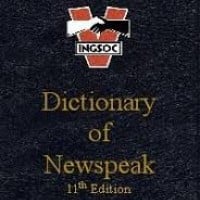
The official language of the superstate of Oceania and the Party. The language is conceived to reduce the words of the English language or "Oldspeak". It has limited vocabulary and restricted grammar with contracted words so that people would express their ideas as elementary as possible in order to restrict freedom of speech and expression that would otherwise go against the Party's contradicting doctrine and dogma.
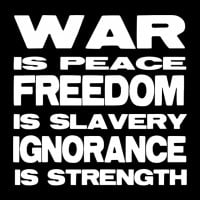
The best way I could put it is that the Party believed that they can maintain peace by continuing the war effort against the other superstates so that it could bind the populace together through ultranationalism, that any independent community would be unsuccessful due to their own misguided views and failures (thus being a slave to one's own instinct) without any guidance from a higher central authority, and that the Party tries to maintain societal order and stability by keeping their populace docile.
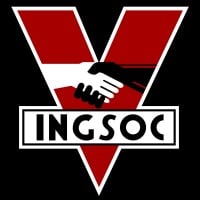
It is a Newspeak term that stands for "English Socialism" as well as the ideology of "the Party". It is a jab on oppressive Soviet Stalinism that is deemed deviant of Marxist thought hence its correlation with socialism.
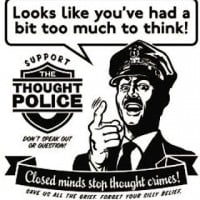
Any unacceptable statement or views that goes against the Party's dogma, expressing criticism against Big Brother, questioning the Party's authority, and trying to debunk their revisionism of current situations and history (by erasing memories). Violations of it would result in the offender to be literally vaporized and have their existence forgotten by their everybody in a whim through the Party's words.
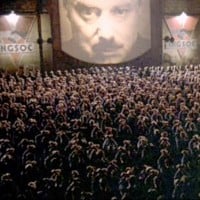

Doublethink is when people accept two contradicting views sanctioned by the Party as correct and acceptable. What is stunning though is that such contradictory belief doesn't cause conflict in one's mind as expected by the Party.
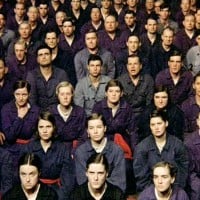
The bottom 85% of the population that makes up the majority of Eurasia other than second-tier party members and the elite Ministry. They are docile after years of being mentally conditioned by the Party and often live in poverty.
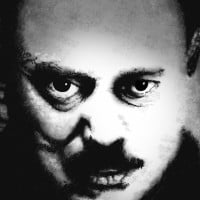
The central authority figure or dictator of Oceania who oppresses the common Proles through far-reaching state surveillance and a cult of personality. His existence is rather dubious in the novel and could have been a fictional representation of the Party like Uncle Sam is to America. He is described as being a handsome man in his mid-40s as described in party propaganda and posters that dominates the streets of Oceania.
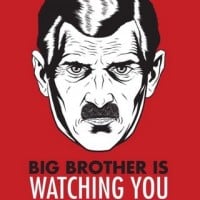
A famous slogan of the Party that reminds people of the constant surveillance by the Party to discourage rebellions or violations of party rules.
EDIT: Sorry, it is supposed to be "Big Brother is Watching You"
An "unperson" is a person who becomes forcibly forgotten after being executed, erased from all books and records. Most "unpersons" are people whose ideas conflict against the state. Unfortunately, this term is much too relevant, even in today's society.
From what is shown in the book, it's the place where the human spirit is destroyed, and alongside it, the individual's personality and beliefs. Room 101 is meant for prisoners to experience their worst fears firsthand for the sole purpose of destroying anything that would have been left of their humanity. the term itself has become a Trope itself.